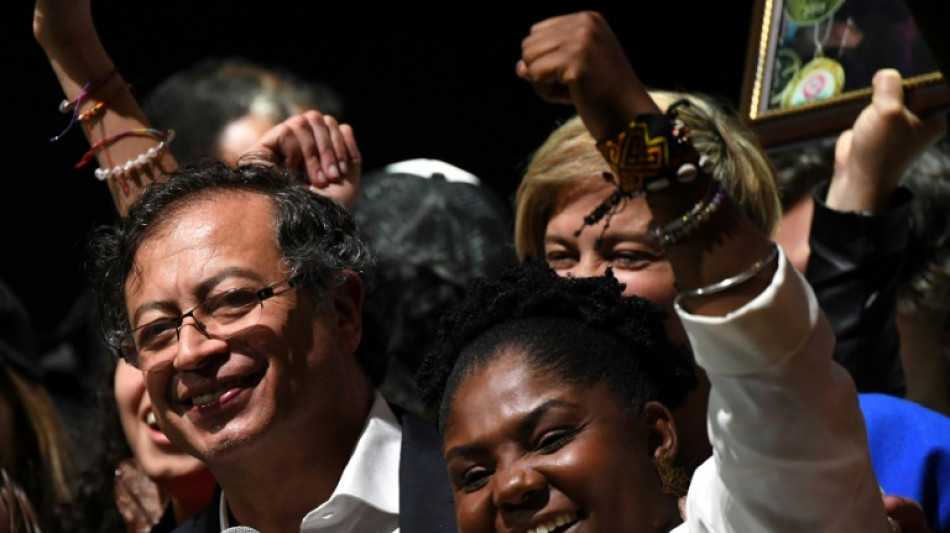
-
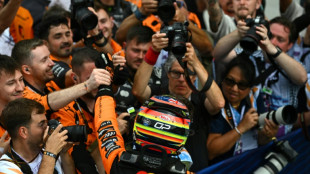 Three in a row Piastri wins in Miami to lead McLaren one-two
Three in a row Piastri wins in Miami to lead McLaren one-two
-
Scheffler ties 72-hole PGA record in CJ Cup Byron Nelson romp
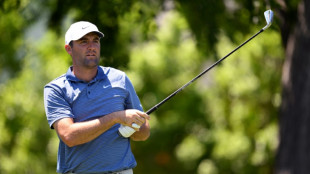
-
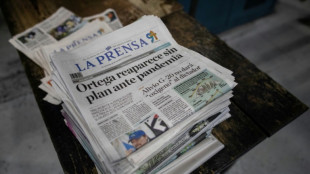 Nicaragua says quitting UNESCO over press prize award
Nicaragua says quitting UNESCO over press prize award
-
Oscar Piastri wins Miami Grand Prix to lead McLaren one-two
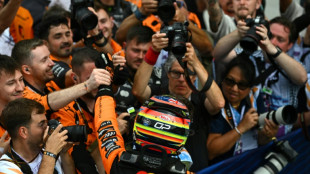
-
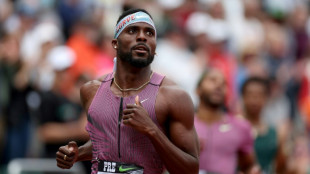 Bednarek runs this year's world-best 200m to win at Miami Grand Slam
Bednarek runs this year's world-best 200m to win at Miami Grand Slam
-
'Lucky number seven' for Ruud after beating Draper to clinch Madrid Open
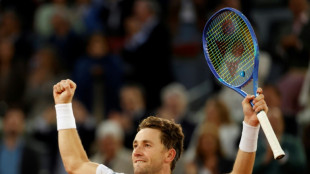
-
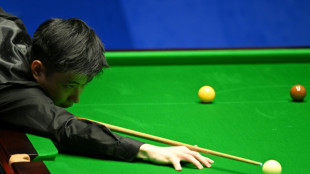 China's Zhao leads Williams 11-6 in world snooker final
China's Zhao leads Williams 11-6 in world snooker final
-
Far-right candidate tops Romania's presidential rerun
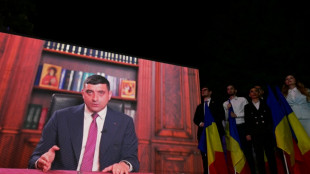
-
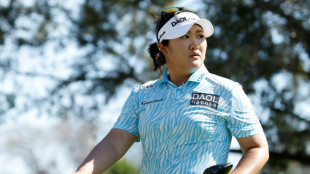 Ryu takes wire-to-wire win at LPGA Black Desert Championship
Ryu takes wire-to-wire win at LPGA Black Desert Championship
-
Marseille held by fellow Champions League hopefuls Lille
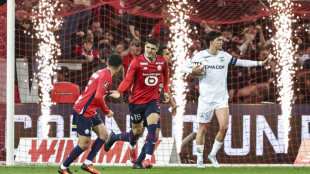
-
 'Lonely' Palou cruises to win at IndyCar Alabama Grand Prix
'Lonely' Palou cruises to win at IndyCar Alabama Grand Prix
-
Zelensky says does 'not believe' Russian truce pledge
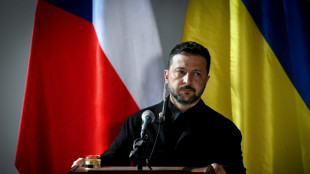
-
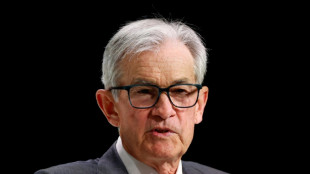 US Fed expected to pause rate cuts again, await clarity on tariffs
US Fed expected to pause rate cuts again, await clarity on tariffs
-
Ruud beats Draper to win Madrid Open and claim maiden Masters
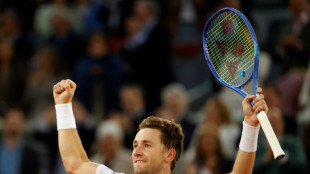
-
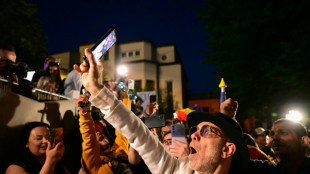 Far-right candidate leads Romania's presidential rerun
Far-right candidate leads Romania's presidential rerun
-
Parag's six sixes in a row, Pant flops in IPL
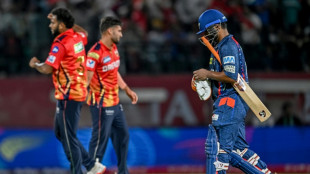
-
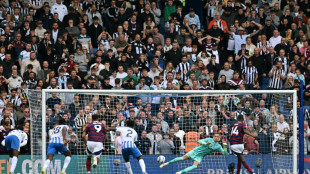 Howe hails Newcastle's 'ruthless' Isak after VAR drama in Brighton draw
Howe hails Newcastle's 'ruthless' Isak after VAR drama in Brighton draw
-
Pant woes continue as Lucknow lose to Punjab in IPL
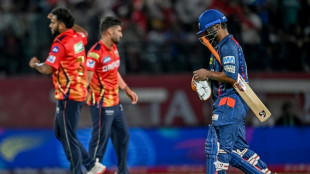
-
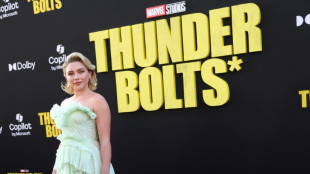 'Thunderbolts' strikes big, topping N.America box office
'Thunderbolts' strikes big, topping N.America box office
-
Kompany player-led shake-up returns Bayern to Bundesliga summit
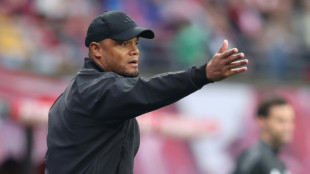
-
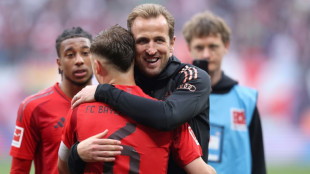 Leverkusen draw hands Kane's Bayern Bundesliga title
Leverkusen draw hands Kane's Bayern Bundesliga title
-
Chelsea sink champions Liverpool, Man Utd crash at Brentford
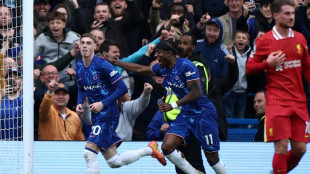
-
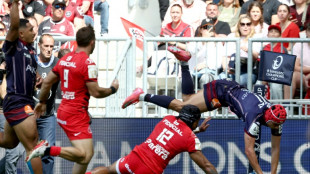 Bielle-Biarrey lifts Bordeaux past Toulouse and into Champions Cup final
Bielle-Biarrey lifts Bordeaux past Toulouse and into Champions Cup final
-
Chelsea beat champions Liverpool to boost top five push
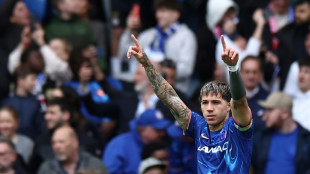
-
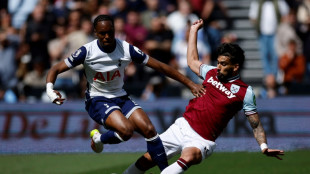 Hammers' Potter reveals Paqueta's tears of frustration at Spurs draw
Hammers' Potter reveals Paqueta's tears of frustration at Spurs draw
-
Lyon's Champions League hopes hit by loss to Lens
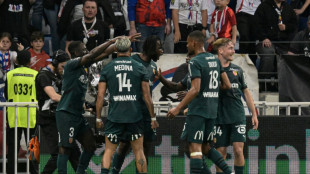
-
 Israel vows retaliation against Iran, Yemen's Huthis over airport attack
Israel vows retaliation against Iran, Yemen's Huthis over airport attack
-
Man Utd 'need to change' after Brentford loss: Amorim
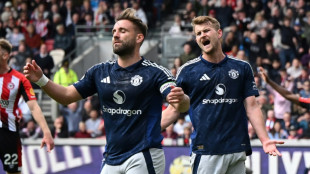
-
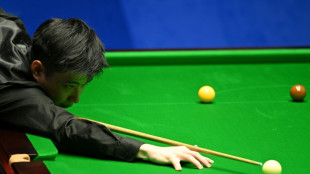 China's Zhao dominates Williams 7-1 in first session of World Snooker final
China's Zhao dominates Williams 7-1 in first session of World Snooker final
-
Zelensky says does 'not believe' Russian truce promises
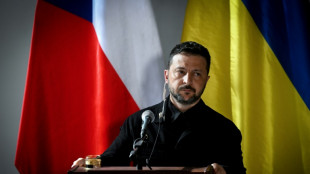
-
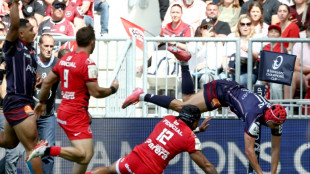 Bielle-Biarrey double lifts Bordeaux past champions Toulouse and into Champions Cup final
Bielle-Biarrey double lifts Bordeaux past champions Toulouse and into Champions Cup final
-
Trump says 'I don't know' if must uphold US Constitution as president
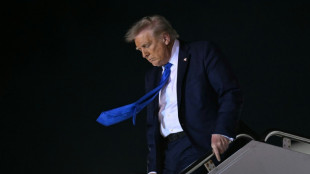
-
 Brazil police foil Lady Gaga gig bomb plot
Brazil police foil Lady Gaga gig bomb plot
-
Godolphin in full bloom as Desert Flower wins 1000 Guineas
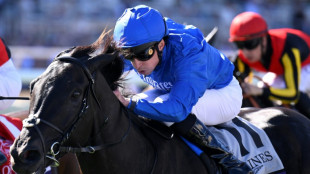
-
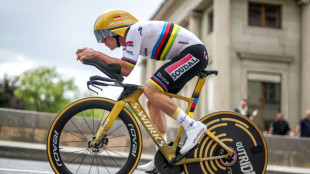 Almeida wins Tour de Romandie as Evenepoel claims closing time-trial
Almeida wins Tour de Romandie as Evenepoel claims closing time-trial
-
Bolsonaro leaves hospital three weeks after abdominal surgery
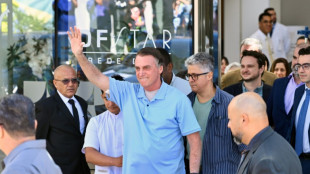
-
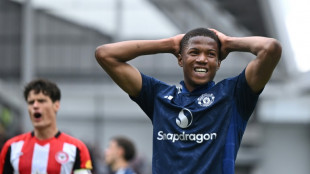 Man Utd crash at Brentford, Isak rescues Newcastle
Man Utd crash at Brentford, Isak rescues Newcastle
-
Romanians vote in tense presidential rerun as far right eyes win
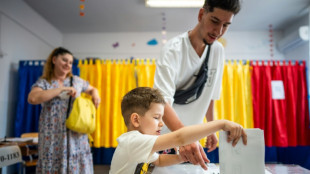
-
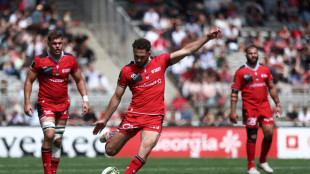 Lyon see off Racing to set up Challenge Cup final against Bath
Lyon see off Racing to set up Challenge Cup final against Bath
-
Kolkata survive Parag's six-hitting blitz to clinch IPL thriller
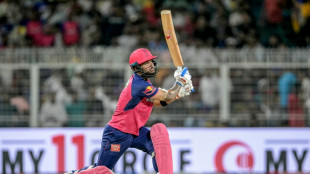
-
 Israel vows retaliation against Yemen's Huthis over airport attack
Israel vows retaliation against Yemen's Huthis over airport attack
-
Mbappe maintains Real Madrid Liga dream in Celta thriller

-
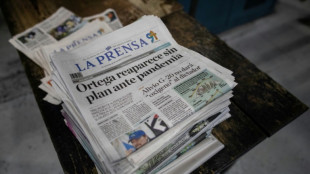 UNESCO says Nicaragua quitting over press prize award
UNESCO says Nicaragua quitting over press prize award
-
Church donation box goes digital in Greece
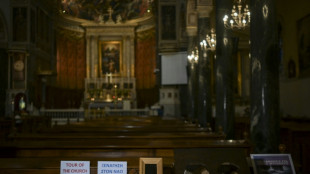
-
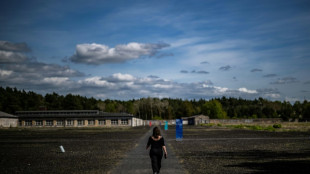 Germans mark liberation of Ravensbrueck Nazi camp
Germans mark liberation of Ravensbrueck Nazi camp
-
Missile hits Israel airport area in Huthi-claimed attack

-
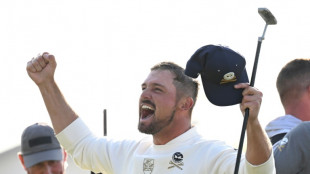 DeChambeau eyes PGA Championship battle after South Korea LIV win
DeChambeau eyes PGA Championship battle after South Korea LIV win
-
Chinese president to visit Russia on May 7-10: Kremlin
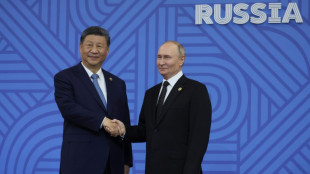
-
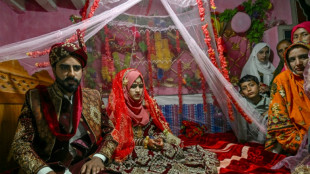 'We don't care': weddings go on in Pakistan's Kashmir border
'We don't care': weddings go on in Pakistan's Kashmir border
-
Missile hits Israel airport area in attack claimed by Yemen's Huthis
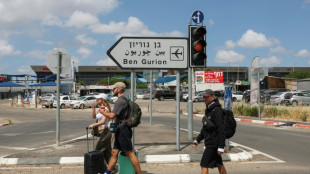

Colombian president's challenges: military, rebels, congress and markets
Gustavo Petro, Colombia's new president, faces a plethora of challenges ahead -- from appeasing deeply suspicious military and business sectors, to ending a decades-long conflict with armed groups and garnering enough support in congress to govern.
Here are four main issues the 62-year-old former guerrilla needs to address:
- Military mistrust
When Petro is sworn as president, the military high command will have to pledge loyalty to a former guerrilla in a country that has been fighting leftist rebels for six decades.
Added to that, in April Petro accused the military high command of being allies of the Gulf Clan, the largest drug cartel in Colombia.
Army general Eduardo Zapateiro responded by accusing Petro of "politicking", breaking the rules of a constitution that bars the security forces from taking part in political debate or voting.
"The issue of mistrust between the president and the military is significant," Sergio Guzman, president of the Colombia Risk Analysis consultancy, told AFP.
"Petro must appoint someone (as defense minister) who commands the respect and trust of military members, otherwise, the transition is likely to be a mess."
It is normal for a new president to "purge" the military high command when taking office, said Felipe Botero, a professor of political science at Los Andes University.
But "Petro will have to do so with silk gloves," he added.
The new president's choice for defense minister will be keenly scrutinized.
So far, all he has said is that he will appoint a woman specializing in human rights.
- Ending armed conflict
As an ex-guerrilla himself, Petro already faces a mountain of skepticism and even hatred.
During the campaign he faced many false accusations, including claims that he personally killed many people when he belonged to the M-19 rebel group -- he says he was just an organizer.
"It was a campaign of lies and fear mongering," Petro said.
Before the election he vowed to open peace negotiations with the National Liberation Army (ELN), Colombia's last active rebel group. But to do so would be to walk a tightrope.
"I think Petro will struggle a lot with the ELN. When he comes into office he will have a million political battles to fight," said Elizabeth Dickinson, Colombia analyst at the International Crisis Group in Bogota.
If he wants to convince his doubters that "he is not himself an extreme left wing politician," opening negotiations with the ELN should be put on the back burner, she said.
However, Dickinson added that "the only real exit route from the conflict" is to negotiate with armed groups that have stepped up violence this year.
- Forming majorities
Petro's allies took a significant number of seats in March's legislative elections, but not enough for a majority.
"This result does not give the new president a clear mandate to execute his policy without at least trying to address" opposition concerns, said Guzman.
In such a fragmented congress, Petro will have to "show a willingness to share cabinet positions with different parties."
He will also need to demonstrate he has learned from the mistakes he made as mayor of Bogota from 2012-15, when he repeatedly clashed with the city council, which buried many of his initiatives.
"Now that the problem is the governability of congress, Petro has to try to propose what he called a great national agreement," Alejo Vargas, a law professor in the National University, told AFP.
- Appeasing markets
On the campaign trial, Petro tried to assuage fears he would turn Colombia into a new Venezuela by promising not to expropriate private property or businesses.
In his first speech as president-elect, he struck a conciliatory tone.
"We are going to develop capitalism in Colombia, not because we love it but because we must first overcome pre-modernity," Petro told cheering supporters.
That was "a clear message to the right," said Botero.
Petro is saying "I'm left-wing, but that doesn't mean I will radically transform the economy."
But judging by his first speech, friction is around the corner.
"He said thigs that imply regulation, which is one of the main fears of the markets," said Botero.
Michael Shifter from the Inter-American Dialogue think tank says Petro "doesn't want to be a failed president and if any country is a failed country, it's Venezuela."
But economist Jorge Restrepo says Petro still needs to build confidence in the business sector.
The new president will need to treat businesses not "as rivals but as those that will manage the development and creation of employment."
L.Durand--AMWN